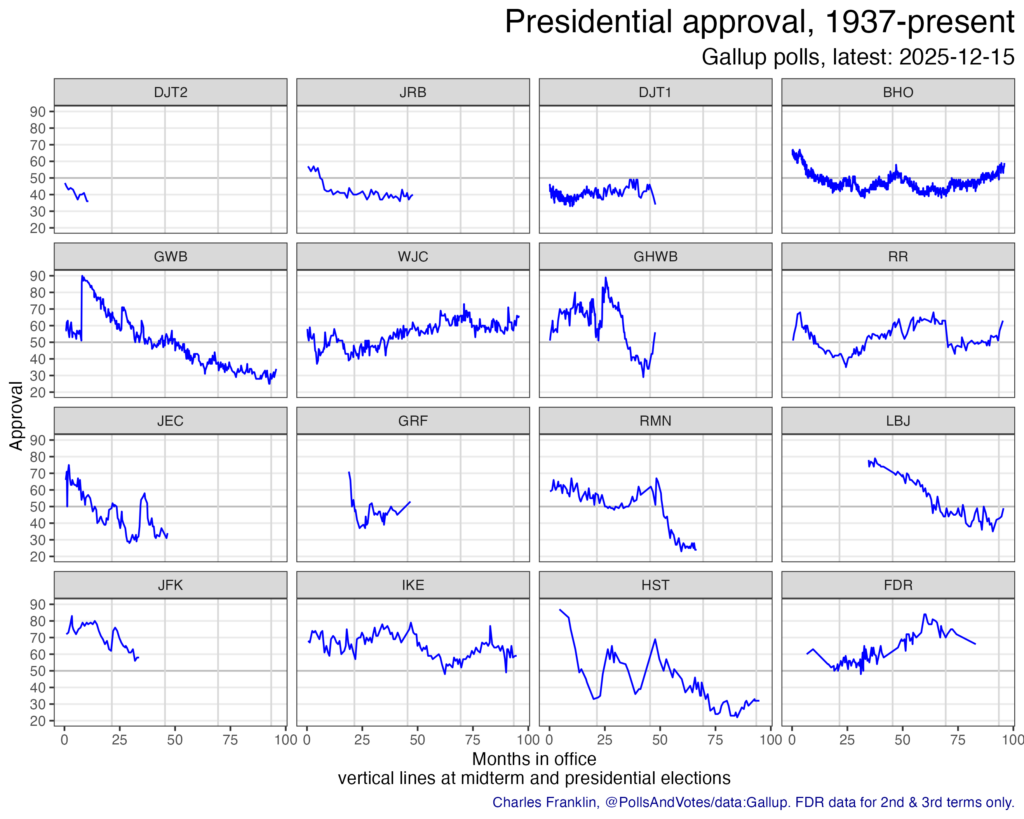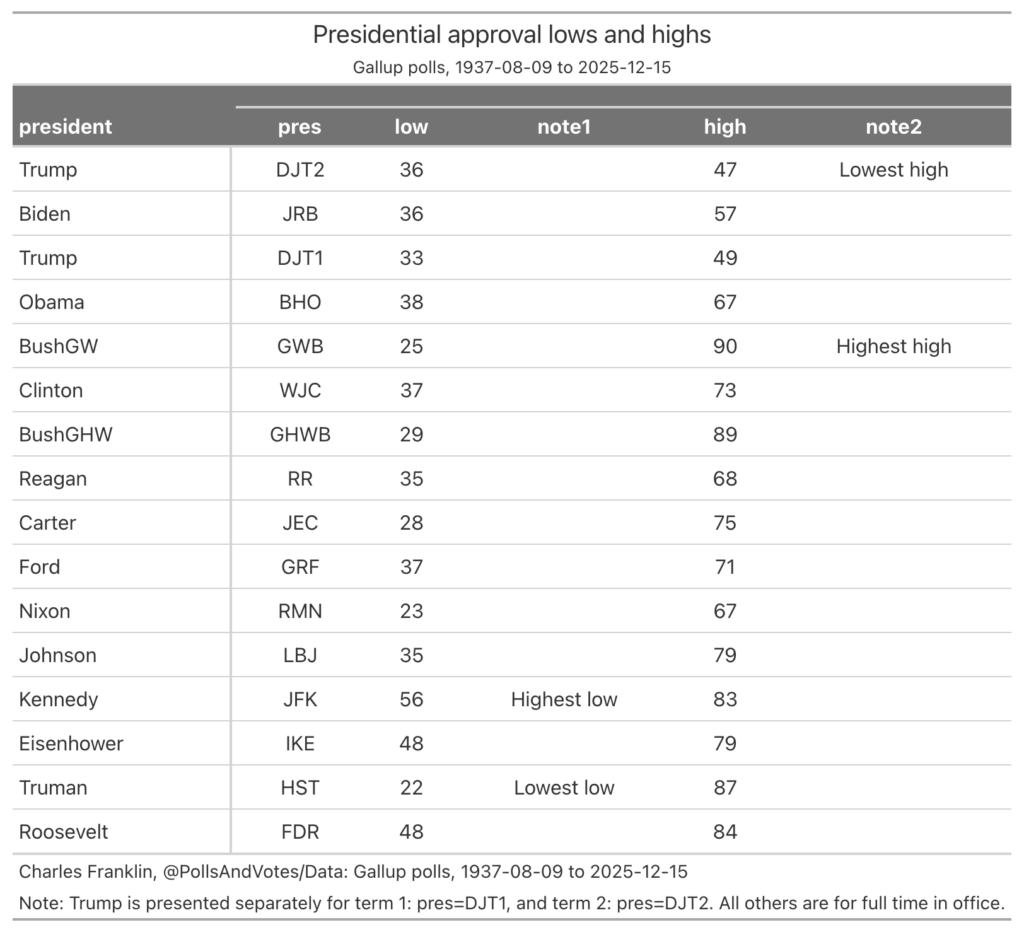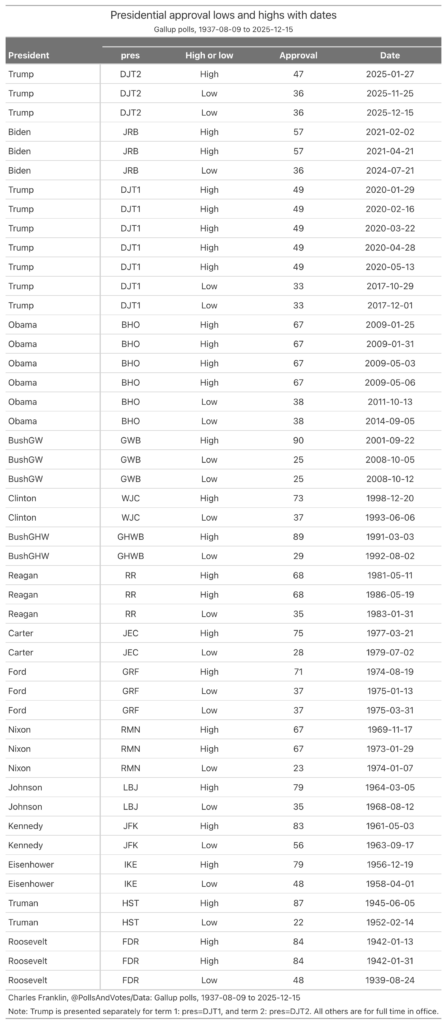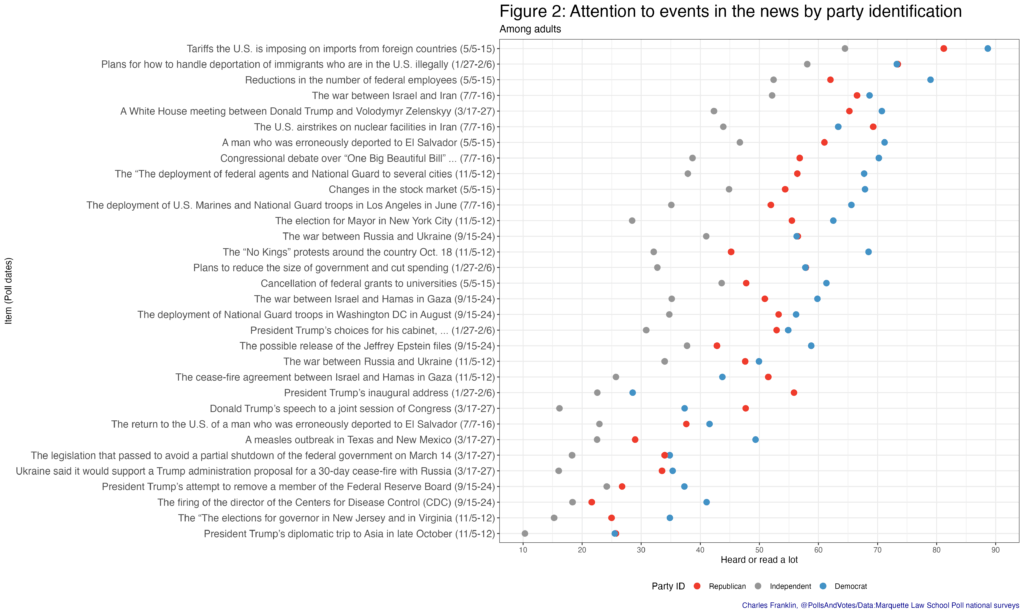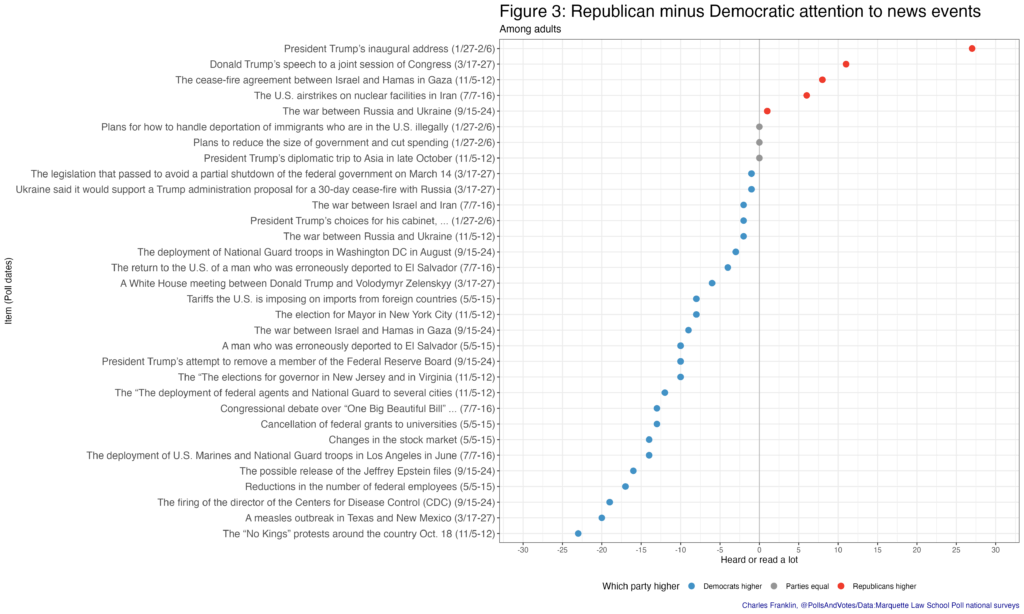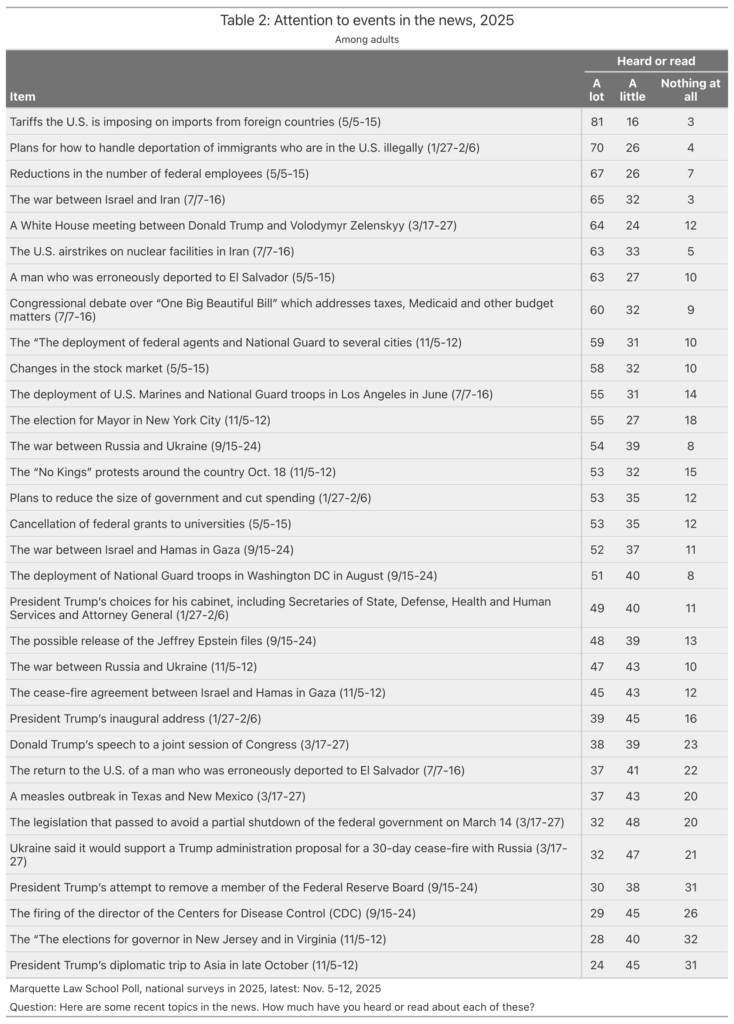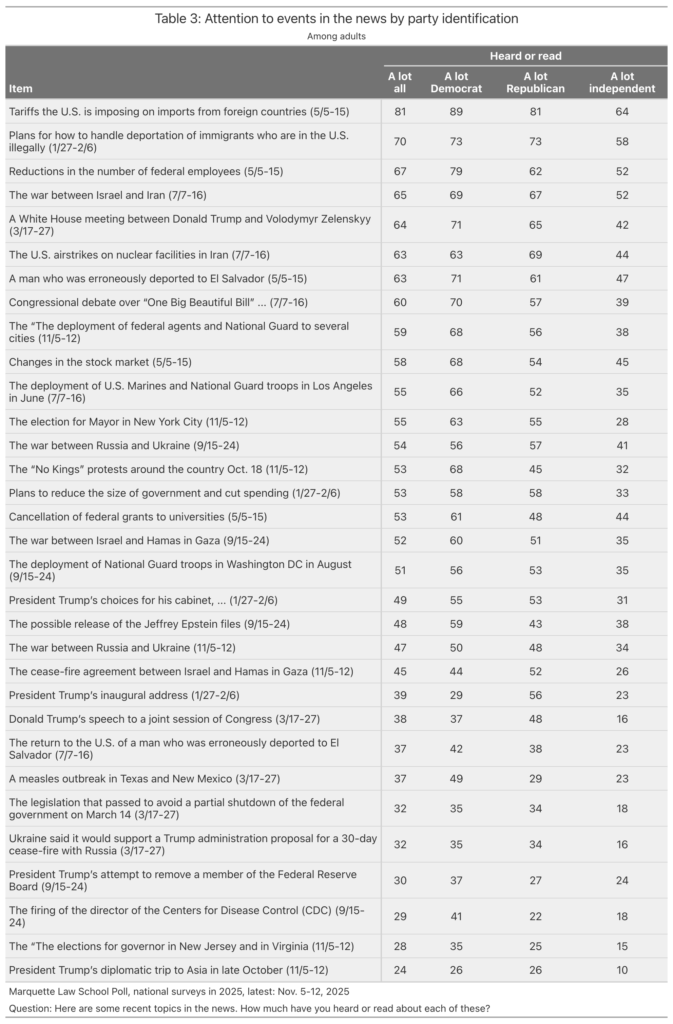Public opinion favors Supreme Court decision limiting Trump tariffs
In Jan. 63% said Court should rule against Trump, including 33% of Republicans
On Feb. 20 the United State Supreme Court ruled against President Trump’s authority to impose tariffs under the International Emergency Economic Powers Act of 1977. The case is Learning Resources, Inc. v. Trump.
Public views of the case have been consistently in favor of upholding limits on the tariff authority since the Marquette Law School national poll first asked about this case in September. The table shows opinion over three national surveys.
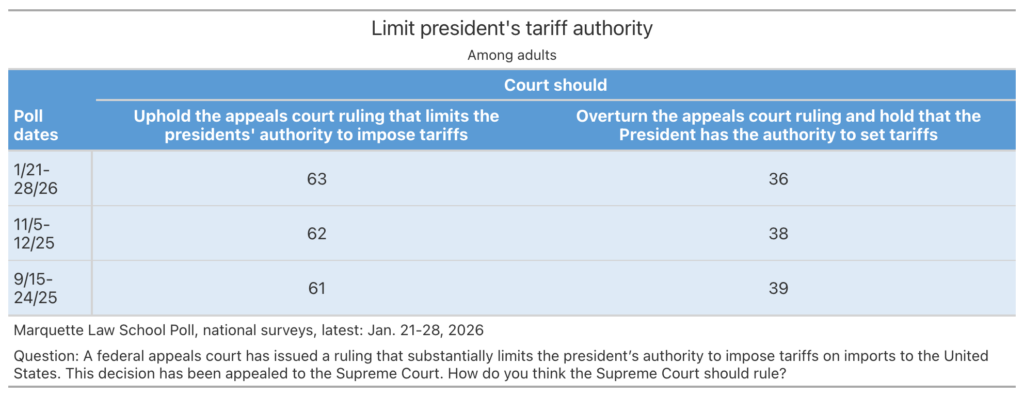
The partisan divide on the tariff case is somewhat less stark than on many issues, with a significant minority of Republicans opposing the president’s position. A third of Republicans in the January poll wanted the Court to strike down the tariffs, an increase from 26% in November. More than two-thirds of independents favored overturning Trump’s use of tariffs, as did an overwhelming 92% of Democrats.
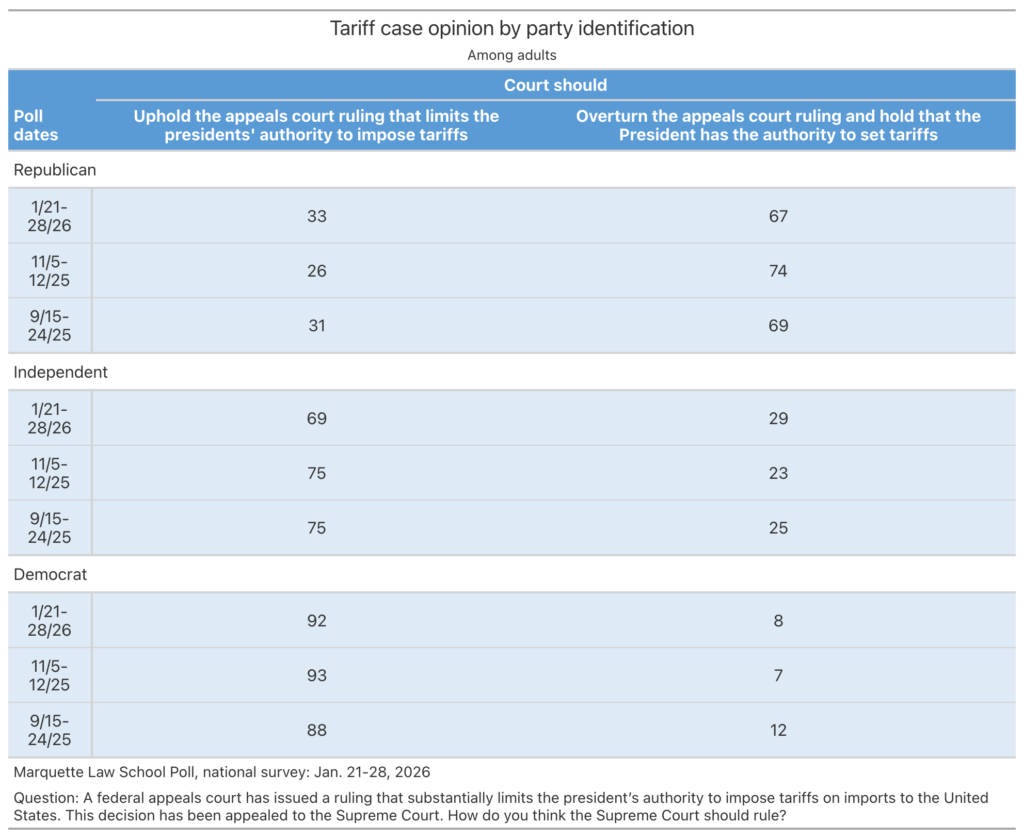
Approval of Trump’s handling of tariffs has consistently been below his overall approval rating in Marquette Law School national polls, with approval on tariffs below 40% in each of five polls since May 2025. In January, 26% of Republicans disapproved of Trump’s handling of tariffs, as did 71% of independents and 95% of Democrats.
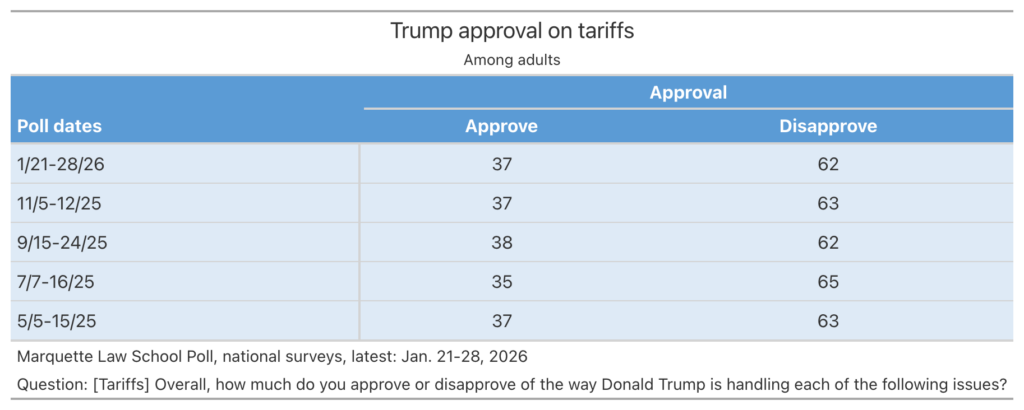
A majority of the public, 56% say that tariffs hurt the U.S. economy, while 30% think they help the economy and 14% say tariffs don’t make much difference. Views of the effect of tariffs are related to opinion of how the Court should rule, as shown in the table below. Those who think tariffs help the economy are in favor of overturning the limits on the president’s authority, 77%, though even among this group more than one-in-five think the president’s authority should be limited, 23%. Among those who say tariffs harm the economy, 89% think the Court should limit presidential authority. Opinion is evenly divided among those who say tariffs don’t make much difference.
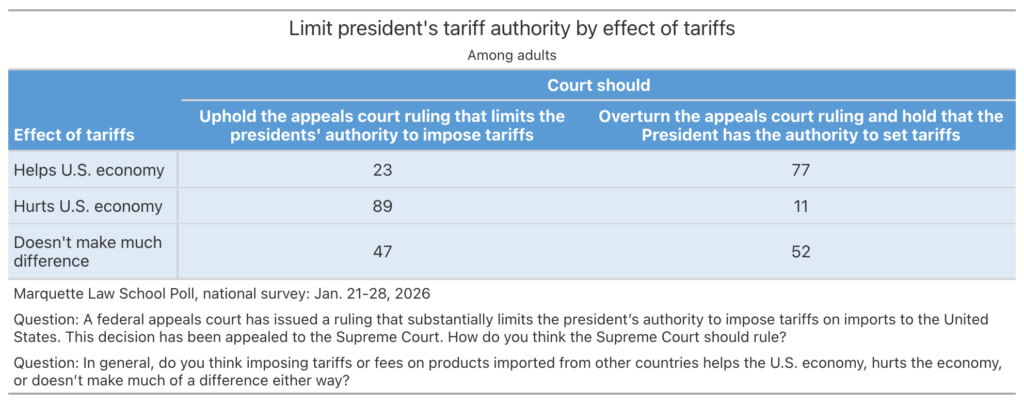
The Court and the President
A large majority of adults believe that the president must obey a Supreme Court decision, 82% with 17% who say the president can ignore a decision with which he disagrees. These views have been quite stable in 10 Marquette polls since 2019, never dipping below 76% saying the president must obey the Court, and not below 83% since Jan. 2025.
This belief in the authority of the Court is not a partisan matter. Among Republicans 76% say the president must obey the Court, as do 79% of independents and 90% of Democrats.
In January, a majority, 57% said the Court was going out of it’s way to avoid ruling against Trump, while 43% said the Court was not doing so. Among Republicans 34% thought the Court was avoiding ruling against Trump, as did 59% of independents and 78% of Democrats.
Approval of the Supreme Court
Approval of the U.S. Supreme Court has fallen since September, from 50% to 44% in January. Approval fell sharply in 2022 following the Dobbs v. Jackson Women’s Health Organizationdecision which overturned abortion rights established in Roe v. Wade. Net approval, the percentage approval minus disapproval, remained negative throughout the remainder of 2022 and through 2024. In January 2025 net approval moved up into positive territory before turning down in July. The table shows approval of the Court since September 2020.
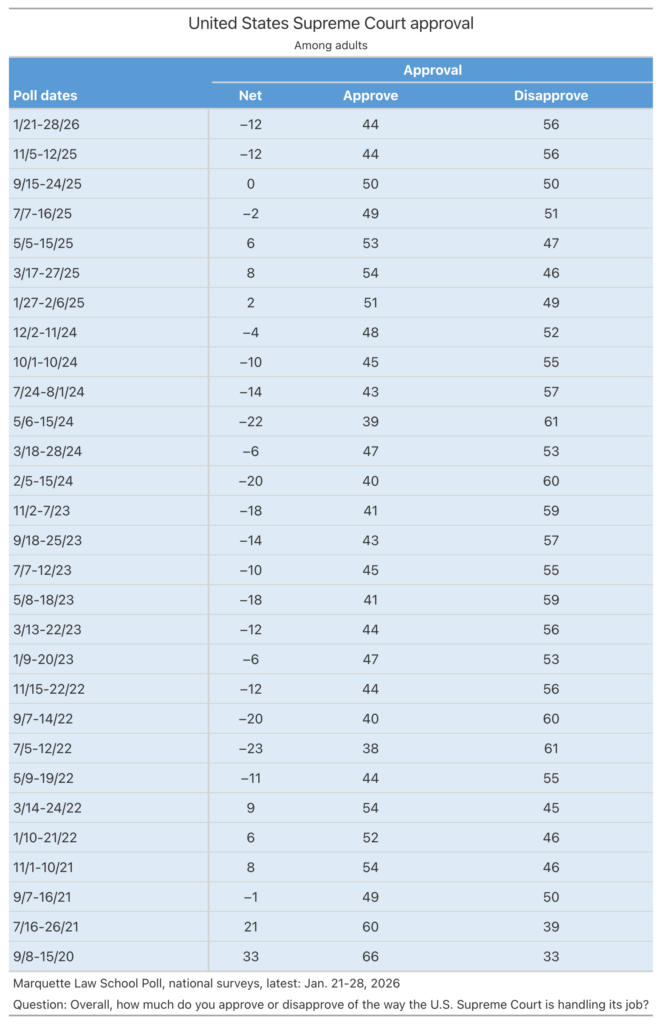
About the Marquette Law School Poll
The survey was conducted Jan. 21-28, 2026, interviewing 1003 adults nationwide, with a margin of error of +/-3.4 percentage points.
Interviews were conducted using the SSRS Opinion Panel, a national probability sample with interviews conducted online. The detailed methodology statement, survey instrument, topline results, and crosstabs for this release are available at https://law.marquette.edu/poll/category/results-and-data/

